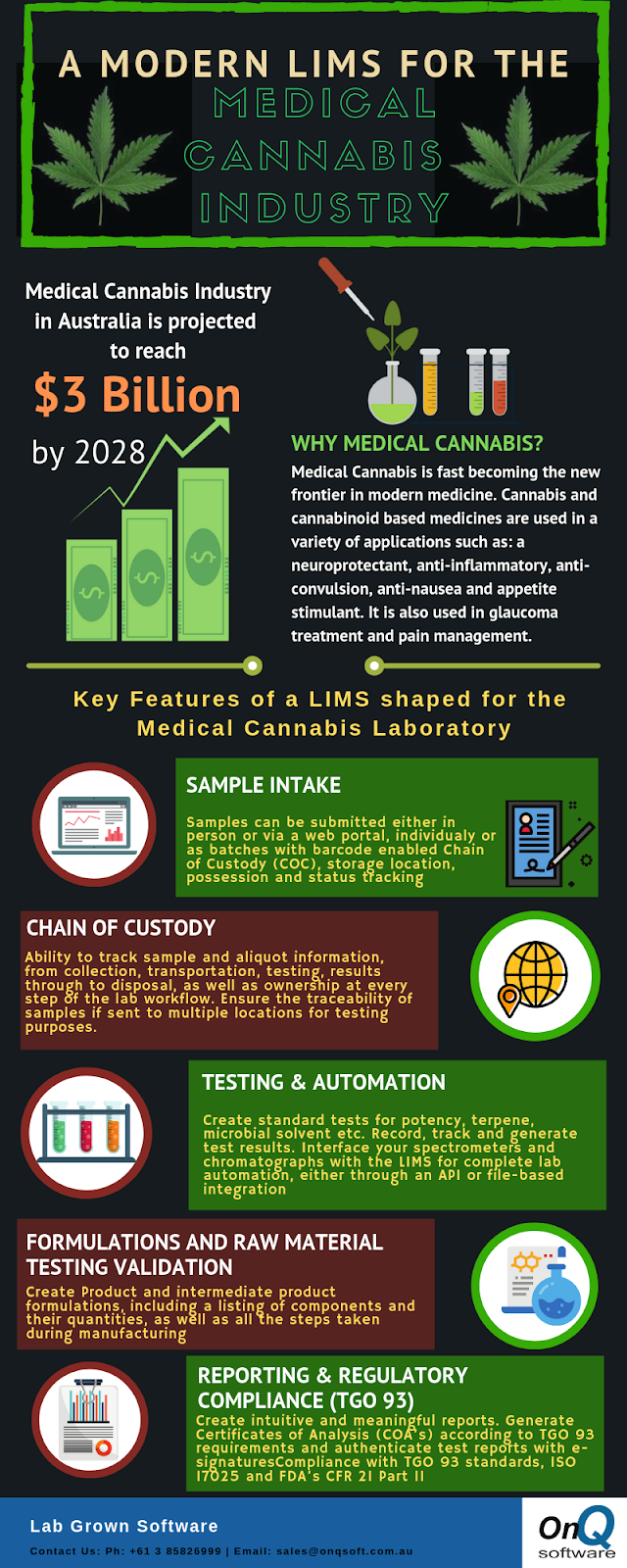Medical Cannabis is fast becoming the new frontier in modern medicine with TGO 93 marking the recent positive changes to the Australian Legislative environment, providing quality standards for Medicinal Cannabis and a pathway for researchers, doctors and pharmacists to begin the development, manufacturing, prescription and distribution of medicinal cannabis.
These new regulations have led to the emergence of a number of cannabis-testing laboratories as well as massive facilities for growing and manufacturing of medical-grade cannabis. Scaling of research and evolution of regulatory requirements has resulted in a continuous growing quantity of data, managing this data becomes quite a task. This is where the implementation of a Laboratory Management and Information System (LIMS) can make all the difference.
Key Features of a LIMS for the Medicinal Cannabis Industry:
As the Medical Cannabis industry is new and rapidly growing, the most important feature of a suitable LIMS must be that it is flexible enough to readily adapt to changes in technology, testing and regulatory requirements. Additionally, it must have the following features:
- Sample Submission: Samples can be submitted either in person or via a Customer Portal, with barcode enabled Chain of Custody (COC), storage location, possession and status tracking.
- Chain of Custody: Ability to track sample and aliquot information, from collection, transportation, testing, result entry through to disposal, along with ownership at every step of the lab workflow. Ensure the traceability of samples if sent to multiple locations for testing purposes.
- Quality Assurance through Sample Testing and Analysis: Create qualitative and quantitative tests for potency, terpene, microbial solvent, heavy metals and pesticides. Record, track and generate the test results as well as record SOP’s and ingredients to ensure compliance with TGO 93 Standards
- Formulations & Raw Material Tracking: Create Product and intermediate product formulations, including a listing of components and their quantities, as well as all the steps taken during manufacturing
- Instrument Integration and complete lab automation: Interface the LIMS with your spectrometers and chromatographs either through an API or file-based integration
- Analytical (COA) and Regulatory Reporting: Create intuitive and meaningful reports. Generate Certificates of Analysis (COA’s) according to TGO93 requirements and authenticate test reports with e-signatures
- Data Security and Detailed Audit Trail: Role – based security and e-signatures restricts unauthorised access to sensitive data complying with ISO 17025 and FDA’s CFR 21 Part 11
With the present-day challenges faced by cannabis testing laboratories, implementing a comprehensive LIMS becomes imperative. The goal of a LIMS is to ensure that your lab is able to focus more on scientific research through the reduction of manual workload, increased efficiency in resource management and ability to comply with the changing regulatory environment.


